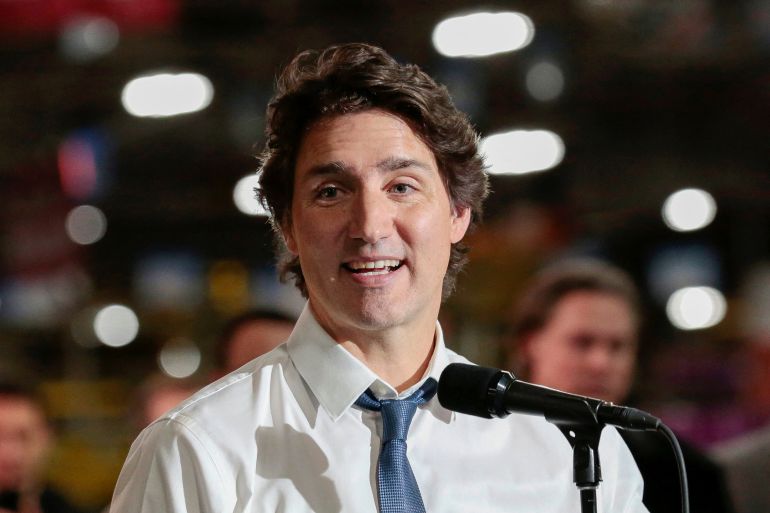Canada agrees to billions in incentives for EV battery plant
Deal with carmaker Stellantis aims to bolster electric vehicle supply chain and ‘strengthen clean economy’, gov’t says.

Canada has agreed to provide billions of dollars in incentives in a deal with carmaker Stellantis to build an electric vehicle (EV) battery plant in the province of Ontario, as the country tries to boost its clean-energy supply chain and woo major projects.
The plant in Windsor, Ontario – a $3.8bn (five billion Canadian dollars) joint venture to supply EV batteries for a significant portion of the North American market – was billed by the federal government as the largest-ever investment in the country’s auto sector.
Keep reading
list of 3 itemsHow China drives global electric car sales
Classic car owners modernise with electric conversions
But Stellantis suspended the project in May, saying Canada had not delivered promised subsidies.
In a statement on Thursday, the Ontario and Canadian governments announced that a deal had been finalised and would include “performance incentives” to Stellantis of up to $11bn (15 billion Canadian dollars).
“Today’s announcement will protect and create thousands of good-paying jobs for workers, including unionized jobs, as we establish an end-to-end electric vehicle supply chain to strengthen the clean economy,” the governments said.
Canada and Ontario also said the agreement extended to a large Volkswagen EV battery cell manufacturing plant in St Thomas, about 190km (118 miles) east of Windsor.
Europe’s largest carmaker could receive up to $9.7bn (13 billion Canadian dollars) in incentives, they said.
Canada – home to a large mining sector for minerals such as lithium, nickel and cobalt – has made considerable efforts in recent years to attract investment in its electric vehicle sector, touting tax incentives and clean energy subsidies.
The country’s strategy is in line with that of its biggest trading partner, the United States, whose Inflation Reduction Act (IRA) provides billions in subsidies for green industries.
The performance incentives announced on Thursday are contingent on, and proportionate to, the production and sale of batteries from each project, and could be cancelled or reduced if the incentives offered under the US IRA are reduced or cancelled, according to the statement.
Stellantis said in a separate statement this week that construction of the plant in Windsor – across the river from Detroit, Michigan – could resume “as of now” and that battery production was scheduled to begin in 2024.
“This collective effort made the agreement possible, and we are now resuming construction at the Windsor site,” said Mark Stewart, Stellantis’s COO for North America.